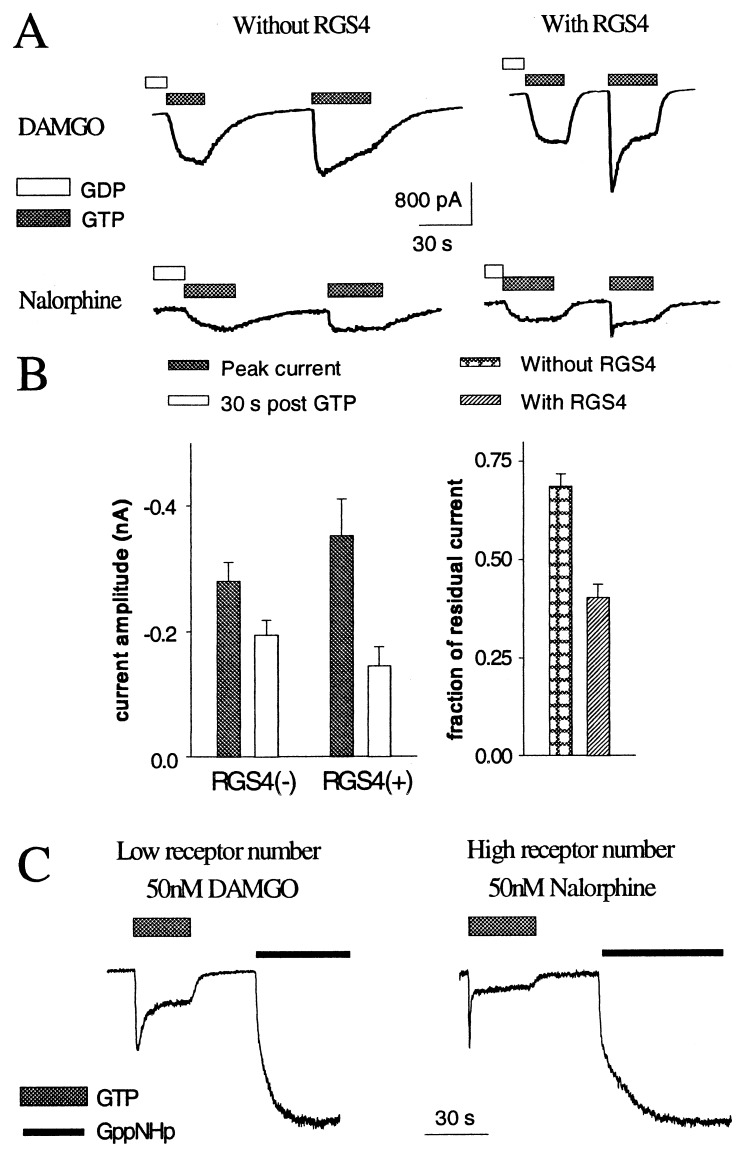Figure 3.
Expression of RGS4 alters the kinetics of channel activation. (A) From a batch of oocytes, those oocytes coexpressing RGS4 yield faster channel activation and deactivation and more prominent desensitization, as evident from inside-out patch recording. (B) Peak and steady-state GIRK currents induced by switching from the nucleotide-free solution to one containing GTP (n = 10 for each group) (Left). DAMGO (50 nM) was used to activate μ-opioid receptors. The fraction of residual current normalized to the peak in the group coexpressing RGS4 is smaller, thus showing larger apparent desensitization (Right, P < 0.05). (C) A low receptor activity, because of either low level of receptor expression (Left) or the use of an inefficacious agonist to stimulate the receptors (Right), resulted in small steady-state currents. Subsequent application of GppNHp provoked larger nondesensitizing currents, presumably by disrupting the G-protein cycle.

